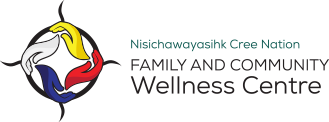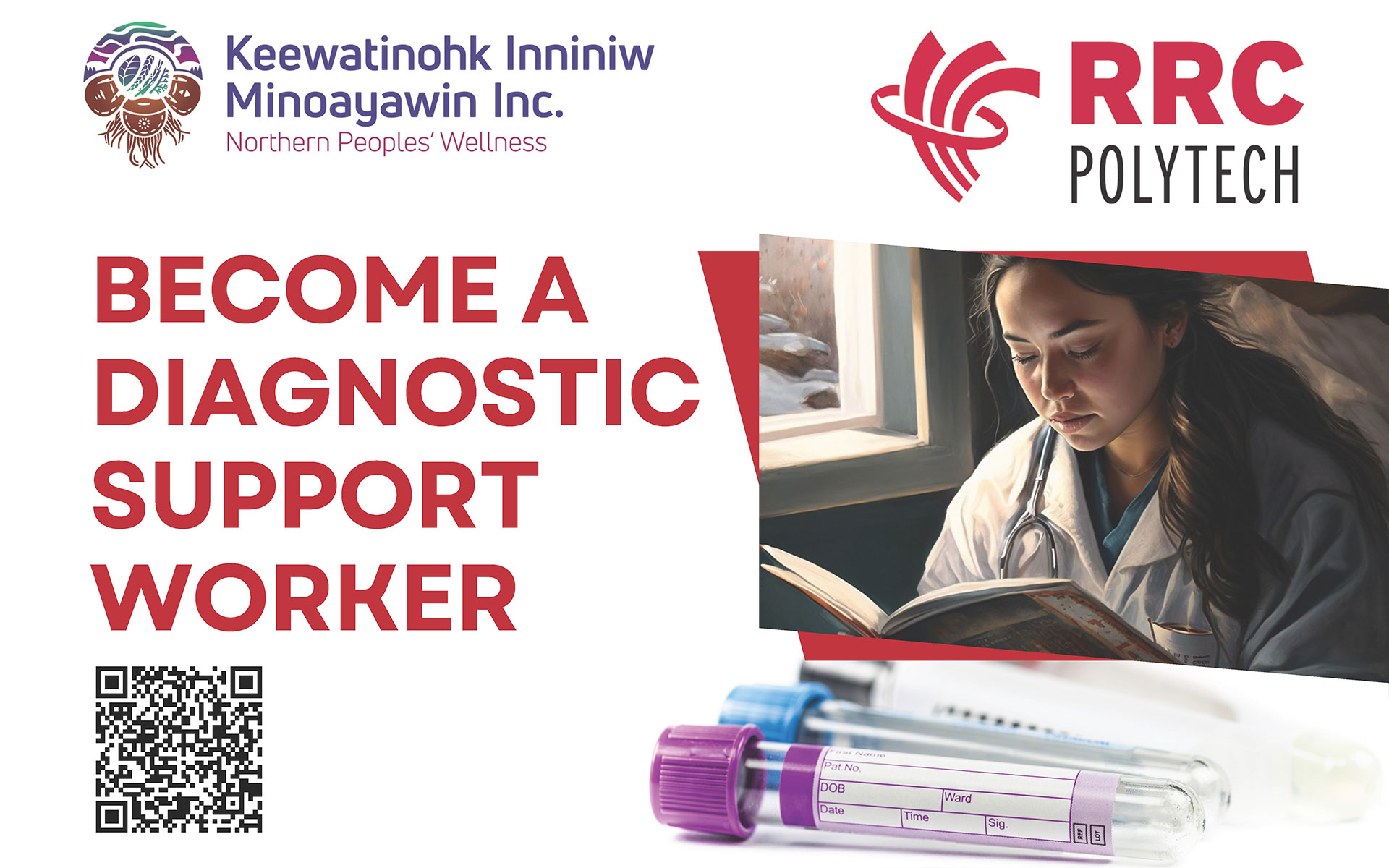Keewatinohk Inniniw Minoayawin Inc. and RRC Polytech have partnered to deliver this suite of micro-credentials to enhance health care services for remote First Nations communities. The program allows students to add the skills their nursing station requires.
EARN FOUR MICRO-CREDENTIALS:
- Academic
- ECG
- Phlebotomy
- Radiographic Procedures
All interested applicants should contact Brian Flamand directly:
Brian Flamand – Mentorship Coordinator
Interviews are scheduled on May 25-26!
Diagnostic Support Worker Applied Certificate Program
NOTE: This program is only available to select applicants that are sponsored by Keewatinohk Inniniw Minoayawin Inc.
See all RRC Polytech Health Sciences programs ›
The Red River College Polytechnic Diagnostic Support Worker (DSW) program prepares students to practice diagnostic support skills as knowledgeable, competent and caring health care professionals. The DSW program is an applied certificate program designed to enhance the accessibility to health care services for remote communities. Focused in community, students are provided with the opportunity to learn and practice clinical skills close to home.
The program is comprised of four micro-credentials courses:
1. Academic Foundations (must be completed first)
2. EKG
3. Phlebotomy
4. Radiographic Procedures
Students will earn a digital badge for successfully completing each micro-credential course and the DSW applied certificate for successfully completing all four micro-credential courses.
Learn more about RRC Polytech micro-credentials >
The DSW program offers a blend of online, in-class lab and clinical learning experiences.
Learning Outcomes
Methods
Learning methods include:
- Online theory – reading, assignments and online class time
- In-person labs – at a hospital or nursing station
- In-person clinical – at a hospital or nursing station
Training
You will:
- Be shown how to use the Red River College Polytechnic online learning tools
- Do some reading and assignments on your own
- Have some scheduled online classes
- Have quizzes and tests online
- Participate in labs with an instructor in a hospital or nursing station
- Complete clinical courses under supervision at a hospital or nursing station
NOTE: Depending on your home community, you may need to relocate – 1-2 weeks for labs and either 1-2 weeks or 2-3 months for clinical.
Work Experience
You may be able to work in a nursing station with only one complete micro-credential – EKG, Phlebotomy or Radiographic Procedures. For example, completion of all three modules in the EKG micro-credential means you can safely practice EKG for employment. You can only practice micro-credentials that you have completed.
Micro-credentials
Academic Foundations Micro-credential
Academic Foundations micro-credential consists of four modules to give you information that is important to learn before the other specific micro-credentials.
- Anatomy and Medical Terminology – important body parts and medical terms
- Safety in Health Care – safety skills for DSW and their patients
- Professional Practice and Communication – how to communicate in health care, including patients, charts and reports
This micro-credential is offered from September through the end of November.
Once you have completed Academic Foundations, additional micro-credentials can be taken one, two or all three at a time: EKG, Phlebotomy and Radiographic Procedures. Note that micro-credentials will be offered at specific times.
EKG Micro-credential
Three modules must be completed in sequence to earn this micro-credential:
• Theory – learn anatomy and how the heart works and why EKG is used; pass required on theory assignments and quizzes
• Lab – spend time in a lab setting practicing EKG; demonstration of competence in psychomotor skills required for EKG
• Clinical – practice EKG skills on real patients; demonstration of continued competence in the clinical environment
This micro-credential is offered from January through August. Theory runs January through March, labs run April through May and clinical runs May through August.
Phlebotomy Micro-credential
Three modules must be completed in sequence to earn this micro-credential:
• Theory – learn anatomy and skills for phlebotomy
• Lab – spend time in a lab practicing phlebotomy
• Clinical – practice phlebotomy skills on real patients
This micro-credential is offered from January through August. Theory runs January through March, labs run April through May and clinical runs May through August.
Radiographic Procedures Micro-credential
Three modules must be completed in sequence to earn this micro-credential:
• Theory – learn anatomy and skills to take x-rays
• Lab – spend time in a lab practicing taking different x-rays
• Clinical – practice taking x-rays on real patients
This micro-credential is offered from January through August. Theory runs January through March, labs run April through May and clinical runs May through August.
Certificate
After completing all of the modules within each of the EKG, Phlebotomy and Radiographic Procedures micro-credentials, you will graduate with a Diagnostic Support Worker Applied Certificate.
Apply
Have a question or ready to apply to the program while seats are still available?
Call 204.632.2955.






